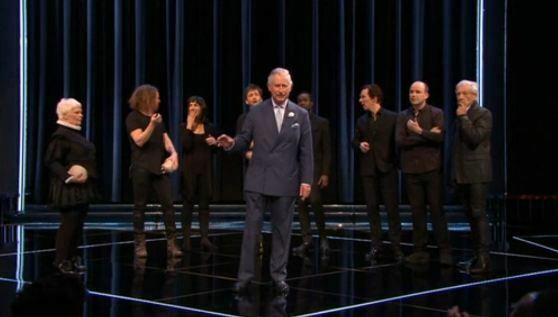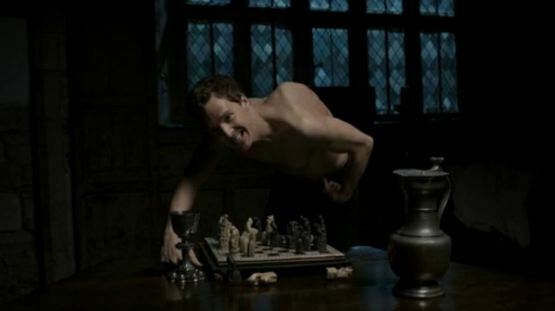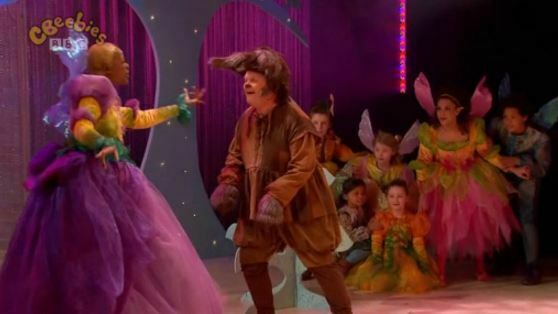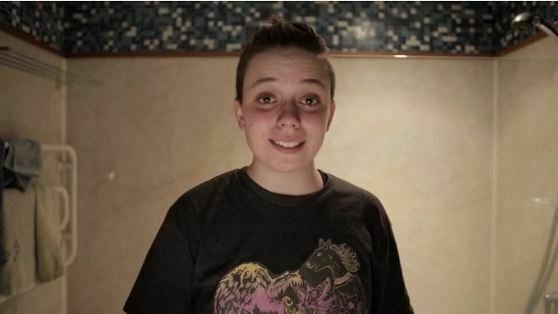
Fourth and final among these reviews of the year is Shakespeare. 2016 was Shakespeare’s quatercentenary, apart from anything else a great opportunity to use that splendid word – and an annoyance of course when others try to correct it (there is no ‘r’ in quater- – look it up). Specifically, it was four hundred years since William Shakespeare’s death, and we were all honour-bound to mark it some way.
There are two problems with this – how, and why. The ‘why’ seems superficially obvious, since we respect round numbers and several other centenaries were marked during the year, among them the Battle of the Somme, the Battle of Jutland, and the Easter Rising. But things are less clear-cut when it comes to the birth or death dates of an author, whose significance lies between either point rather than resting on them. And Shakespeare matters more to some that he does to most. Shakespeare to the majority is someone vaguely understood to be worthy of respect, but not easily understood, more trial than pleasure. So the ‘how’ hinges on marking the occasion in ways that serve the many while appealing chiefly to the few.

These dilemmas were central to the fascinating hodge-podge that was Shakespeare Live! From the RSC. This was a variety entertainment put on by the Royal Shakespeare Company at the Royal Shakespeare Theatre in Stratford on 23 April 2016 (Shakespeare’s death and assumed birth date) and broadcast live on BBC Two. It was a mixture of readings, songs, comedy routines and dance, designed to have something for everyone and not quite having enough for anyone. Some parts were sublime, chiefly those provided by Shakespeare (especially Ian McKellen’s reading from Sir Thomas More, lines on those seeking asylum that were recently identified as Shakespeare’s, and whose contemporary resonance was palpable). Other parts, such as a mirthless sketch by the Horrible Histories team, just made this viewer squirm (I was in front of my television set, not among those in Stratford). A sketch in which assorted notable actors disagreed about how to deliver the words ‘to be or not to be’, only to be upstaged by Prince Charles, gained plaudits, but had an in-joke quality that seemed to form the heart of the matter. Shakespeare Live!, in its recorded form, will be one of the most interesting outputs of 2016 for Shakespeare scholars of the quincentenary, as they unpick its mixed messages and eagerness to please as evidence of cultural confusion at the start of twenty-first century.

Television marked the quatercentenary rather well, addressing different audiences with tailored products which respected the occasion without getting too excited about it. The Hollow Crown series of Shakespeare history plays filmed with all the techniques of modern cinematic television returned to cover the Henry VI and Richard III plays. The three Henry VIs were condensed into two, and the realistic style did not always sit easily with works that lean towards the symbolic, but Benedict Cumberbatch had a whale of a time as Richard III, and the final shot of the second episode, in which we saw a limping child silhouetted in the shadows, portent of things to come, was a delicious visual coup.

I enjoyed the greater part of Russell T. Davies’ star-laden and fantastical A Midsummer Night’s Dream, before it started to get preachy (Theseus as a Nazi) and made a complete mess of the townsmen’s play and finale. Imagination was eventually undone by over-confidence. More traditional, in that it was filmed in a theatre, but more than a little bit mindboggling, was a 55-minute version of A Midsummer Night’s Dream put on by the stars of the BBC’s children’s channel, Cbeebies. Broadcast on 23 April, with the tots’ hero Justin as Bottom, it was filmed before an audience of children, who must surely have been bewildered by this strange language and peculiar actions which muddled itself up their favourite performers doing their familiar turns. Or maybe they were transported. Or both.
Tucked away on BBC Four on Christmas Day (a graveyard slot if ever there was one) was the Royal Exchange Theatre, Manchester’s production of King Lear, filmed in the round theatre with a largely black cast head by Don Warrington. It was a sturdy piece work, the opposite end to The Hollow Crown‘s visual reimaginings, but in a way doing what television does best, which is to convey actuality simply and convincingly. But the best of Shakespeare on TV in 2016, by some considerable distance, was Upstart Crow, a six-part sitcom written by Ben Elton. It started off looking like it was the poor relation to Elton’s Blackadder, but then revealed itself to be a witty, knowing and ingenious skit on Shakespeare’s life, that solved the quatercentenary conundrum by both mocking its subject and lifting it up. In one moment Shakespeare would be taunted by those around him for writing stuff no one wanted to see and couldn’t understand anyway, then a snatch of poetry would transfix them, and us. David Mitchell’s bourgeois bard was an inspired creation. Shakespeare might have been just a little bit like this, or if not then he is now.

Shakespeare belongs on any platform, and none is better than the other – it’s the results that count. Nevertheless, one feels a sentimental attachment to seeing the plays on a stage. I saw just the two stage productions in 2016, both of which I wrote about here. The bad quarto Hamlet, put on at the Cockpit Theatre by a willing but unknown cast, was an interesting exercise in showing how Hamlet was probably seen by the majority in Shakespeare’s time, in a hacked-down touring version, not all of which made perfect sense. At the other end of the scale, in terms of attention and ambition, was the Old Vic production of King Lear with Glenda Jackson as the king. I wrote somewhat obliquely about the production at the time, so let’s now be honest. I thought it was awful – sloppily directed, unevenly performed, riddled with foolish gimmicks, and too often just plain boring. I nearly walked out, only there was Glenda and you had to get your money’s worth. She was remarkable, of course – eighty years old and performing with extraordinary vigour and command. It’s just that she might have been served so much better.
There were exhibitions on Shakespeare, of course. I got to two. One didn’t involved too much effort, since it was held at my workplace, the British Library. Shakespeare in Ten Acts was a clever exhibition based around ten key performances over 400 years. It was probably a bit too clever, as the crowds we might have expected didn’t really come, resistant perhaps through a feeling that the Shakespeare that is good for you isn’t likely to be much fun. By Me William Shakespeare was the annoying title of a small exhibition at Somerset House, which brought together precious records documenting Shakespeare’s life (including his will, which includes those cute words that gave the exhibition its title). I felt I’d attended out of duty more than anything, and thought back to the British Museum’s inspired Shakespeare: Staging the World exhibition of four years ago, which thoroughly engrossed the viewer in Shakespeare’s world. The heart of an exhibition should be the visitor, not the objects.

And there were other Shakespearean activities, such as the BBC’s Shakespeare on Tour, made in collaboration with the British Library, with brought together BBC local radio and documents of local performances of the plays documented on playbills. And publications, though none that drew my attention (I contributed something very minor to the hefty Cambridge Guide to the Worlds of Shakespeare but haven’t seen it as yet), while the supposed book of the year, Boris Johnson’s Shakespeare: The Riddle of Genius, for which such a handsome advance was paid, won’t be with us til October 2017. Illuminations released the outstanding 1965 BBC recording of the RSC’s The War of the Roses, with David Warner, Janet Suzman and Peggy Ashcroft – televised Shakespeare at its peak, the Shakespearean DVD release of the year. The BFI produced an intriguing compilation of the best bits of silent Shakespeare films, entitled Play On!, and put on a Shakespeare film season, which rather highlighted the fact that the mainstream film industry gave us no Shakespeare films this year (so far as I know). In 1916, for the Shakespeare tercentenary, there were several Shakespeare feature films produced. In 1916 cinema provided the diverse social function that television does now. In 2016 the cinema is only going to ask ‘why’ and not bother with the ‘how’.
My Shakespeare highlight of 2016 belonged to none of the media above. Bright Summer Night is a web video series produced by a New Zealand production team, The Candle Wasters. They specialise in producing modernised versions of Shakespeare’s stories and characters, set among and suffused with the concerns of modern teenagers. Having previously tackled Much Ado About Nothing and Love’s Labour’s Lost (for which see my blog post, Shakespeare and awkward teenagers), they upped their game considerably with their Bright Summer Night, a slick and ingenious translation of A Midsummer Night’s Dream to a New Zealand student’s all-night party. It’s not perfect, it doesn’t have many of Shakespeare’s words, but in 2016 here we have Shakespeare looking forwards, not backwards.